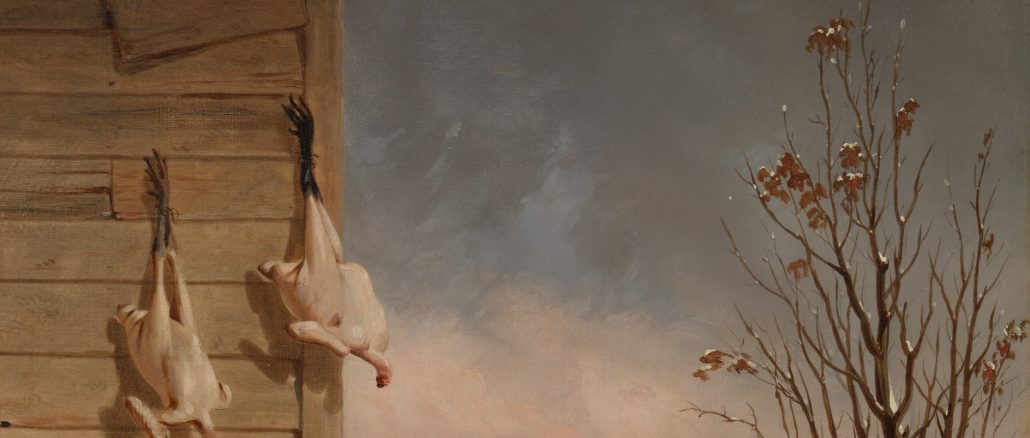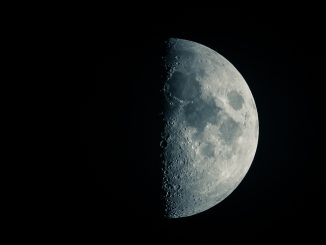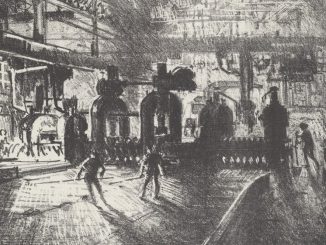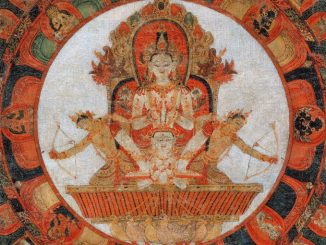
Her father used to cook the turkey on Thanksgiving, but every year it came out of the oven dry and overdone. As a self-proclaimed foodie and frequent cook, she smugly took over the ritual one year, only to discover that cooking a whole bird is more of a burden than she realized.
“Well, have you ever cooked a turkey before?” my mom asked.
I was leaning against the kitchen counter, keeping her company while she whisked a bowl of condensed milk and canned pumpkin.
“It’s a burden,” she said. “I hate doing it, which is why your dad has always done it.”
I don’t remember what I answered—likely something smug, something to brush aside the fact that, no, I hadn’t actually cooked a turkey before. But I took her choice of the word “burden” to mean “a chore,” like dusting or pulling weeds, something that simply takes time and effort. And time and effort were no problem for me at all. What else was I going to do while visiting home?
Moreover, my insistence on cooking the turkey this Thanksgiving seemed like a rightful cause: after nearly thirty years of eating the turkey my dad cooked—turkey that was dry as a paper napkin and grainy against our tongues—I was unhappy. I’d traveled, moved around the country, learned to cook and tasted what I thought food should actually taste like.
No more, I thought. Not this year.
Yet, I was the only one in the family who criticized my dad for the hour too long in the oven, for the one thing on the table that always turned into leftovers for days, and not just due to its size. I figured this was probably because when you douse turkey in salty gravy, or drag it through a puddle of cranberries, it’s no longer just tough, flavorless meat; it takes on the tastes it picks up, like a piece of naan being pulled through a bowl of curry or daal.
Shouldn’t the turkey be able to stand-alone though? Meaning shouldn’t someone who actually knew how to cook, cook the turkey?
Thus, the next morning, I rattled off some regurgitated information from a food blog about temperatures and roasting racks, and waved my dad away. He stood in the doorway of the kitchen, frowning, tapping his hand against the counter nervously. I pulled my shoulders back and set to work making a pile of celery, onions, thyme, garlic and bay leaves on the kitchen counter.
But what I mistook for his stubbornness, or some macho ownership over the cooking of meat, was actually, maybe, a feeling of protection: a daughter who’d grown up off the farm, often going through stages of vegetarianism, was about to handle a body, not a cut of meat. But when he saw that I was able to easily hoist the twenty-pound turkey under one arm, which I made a good show of, he sighed and walked away.
“Let me know if you want me to take over,” he called out. I felt determined.
The bird was surprisingly slick and when I released it from its plastic packaging, it dropped into the sink with a heavy thump. It was wetter than I’d expected; it appeared to have been bathing in its own juices, which made me think of bacteria.
Usually, I dried meat with a paper towel before cooking it so it would sear and brown. This turkey would require a least half a roll of paper towels to dry though, since I mistakenly hadn’t started early enough to let it sit out. But I put it out of my mind and set to cleaning it instead.
I reached a hand into the cavity, and then quickly pulled it back out. I reached in again, slower this time, and was met with the feeling of chill, of bone, of life gone. Inside were the beet red organs—slimy and tender—and the detached neck, obscene as a penis and grotesque with its vertebrae and flesh. After using two fingers to pinch and lift it out, I held it over the corpse before taking a quick breath and chucking it into the garbage can.
I had seen death before, was not scared of blood or gore or snakes or knives. What I was scared of was my own ignorance. My dad had always cooked the turkey until it was as coarse as a sweater, but at least the evidence of life was sufficiently hidden. The grotesque became bland and death became safe, ready to be disguised as something we simply eat, something that did not have eyes, or ears, or lungs.
I heard my mother cleaning in the living room, clicking the vacuum into upright position so that she could pause and slide the coffee table across the rug and then vacuum underneath it. I wanted to join her. I’d organize the photo albums or sweep the garage. I’d made too big a deal about the proper way to prepare all this food and now was confused at my own ambition. Did we even need to eat this body? Did anybody even care about the tradition of turkey enough to have sacrificed this life?
Standing there with both hands inside the bird, I had to swallow the desire to stop what I was doing, to wrap its body in cheesecloth and carry it out to the woods in the backyard, because I now knew what my mother meant by “burden.”
I would stuff it with yellowed grass, soggy leaves, and a handful of acorns, slather the skin with muddied snow—an apology as much as a blessing—then pack it in tight with cold black soil, rejoining it with the worms that it would have loved to eat; forever hiding the evidence of the squish of pink between the delicate ribs, and the nubs of sickly white skin hanging from where the feet should have been.
But I didn’t, and I also didn’t call for my dad; I have too much pride. I held my position in the kitchen, dumped the most obvious remnants of hot, beating life into the garbage, stuffed the turkey with herbs and vegetables, coated it with butter and salt, slid it into the oven, and tested it every half hour with a thermometer. The science and precision of it all helped dull any distortion I’d perceived earlier, and when my dad trudged back up the stairs with a beer in his hand, offering to take out the garbage—now wet with body parts—I shrugged and reached inside the fridge for a beer too.
“Whatever,” I said, “I can do it later.”
He sighed in response, placed his beer near the sink, pulled the plastic bag out of the can and set it down on the kitchen floor so he could tie the handles. It was important for him to help with the meat, somehow. I kept stirring a pan of gravy and didn’t turn to look.
After the turkey came out of the oven, rested, and everyone sat down, it was carved open and revealed to be shiny and tender. “We’re honoring it more this way,” I thought as I cut away at the bird, pausing to take a swig of my drink. But my throat was tight as I lifted the pieces of it onto a serving tray and placed it on the table along with the mashed potatoes, the bread, the salads, the green beans with mushrooms and fried onions, the wine glasses, the silverware, the plates, the napkins.
The civilization that we fool ourselves with.
The “pass the salt, please.”
The words of thanks just before we began to eat, while outside the rain turned to sleet, beating the frozen, undisturbed ground.
 PAIGE TOWERS is a creative and freelance writer who earned her BA from the University of Iowa and her MFA from Emerson College. She currently lives in the diverse Riverwest neighborhood of Milwaukee and is at work on a book of essays about sound. She’s also the Senior Editor of TRUE, a weekly publication from Proximity Magazine. Her writing has appeared in The Harvard Review, The Baltimore Review, McSweeney’s, Midwestern Gothic, Prime Number, Rock & Sling, So to Speak, and many other publications.
PAIGE TOWERS is a creative and freelance writer who earned her BA from the University of Iowa and her MFA from Emerson College. She currently lives in the diverse Riverwest neighborhood of Milwaukee and is at work on a book of essays about sound. She’s also the Senior Editor of TRUE, a weekly publication from Proximity Magazine. Her writing has appeared in The Harvard Review, The Baltimore Review, McSweeney’s, Midwestern Gothic, Prime Number, Rock & Sling, So to Speak, and many other publications.
Twitter: @paige_towers
Featured image: Francis William Edmonds, “Preparing for Christmas (Plucking Turkeys),” oil on canvas, 1851, Bequest of Mrs. Screven Lorillard (Alice Whitney), from the collection of Mrs. J. Insley Blair, 2016, The Metropolitan Museum of Art.


